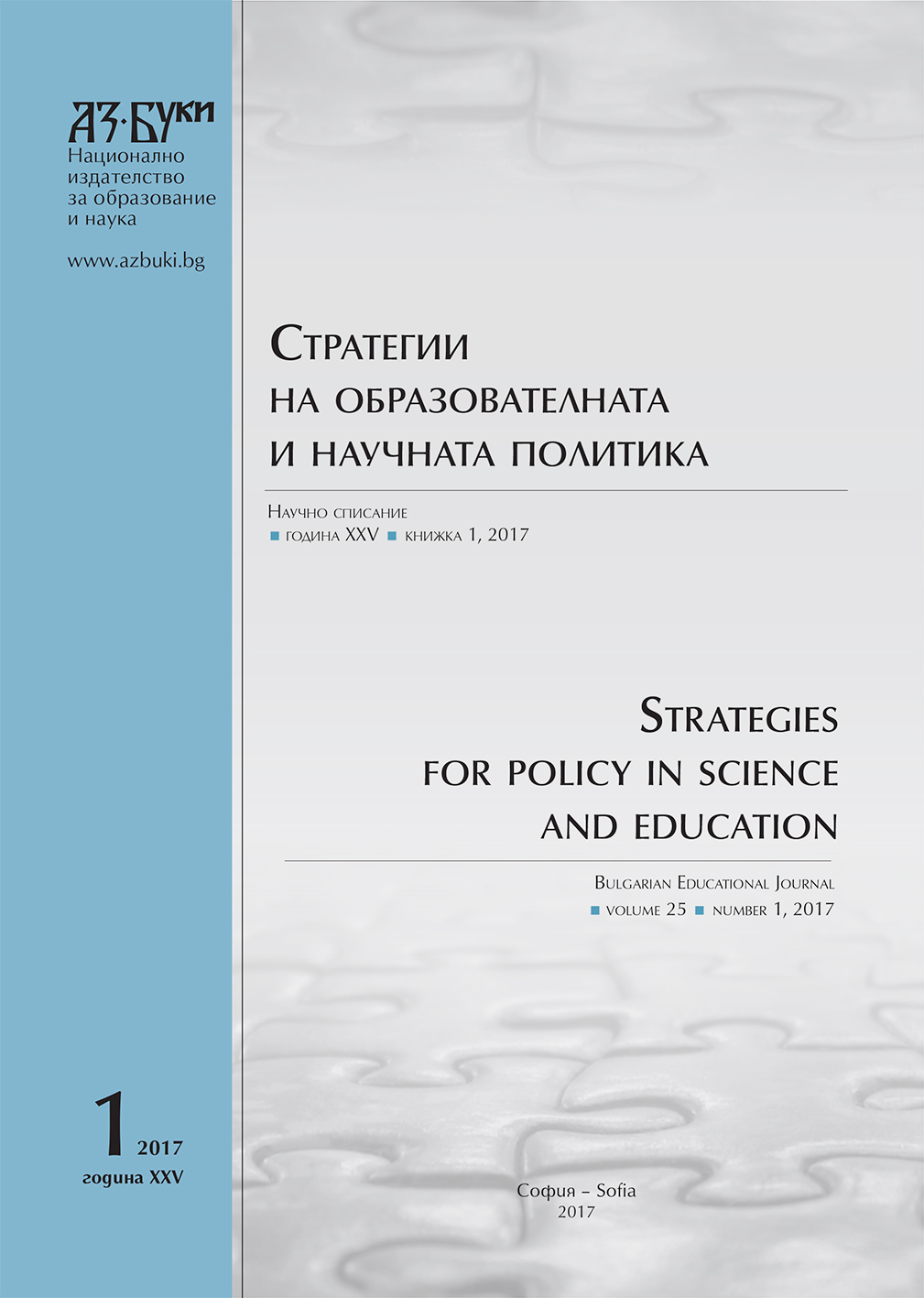За диалога между педагозите в началното училище и специалистите, работещи в социално-педагогически институции
The Dialogue between Educators in Elementary School and Professionals Working in Childcare Institutions
Author(s): Maria DishkovaSubject(s): Social Sciences, Education, Sociology, Preschool education, School education, Educational Psychology, State/Government and Education, Social development, Social differentiation, Family and social welfare, Social Informatics, Sociology of the arts, business, education, Environmental interactions, Social Norms / Social Control, Globalization, Inclusive Education / Inclusion, Sociology of Education
Published by: Национално издателство за образование и наука „Аз-буки“
Keywords: interaction; social pedagogical institutions; education
Summary/Abstract: This text highlights an extremely important and serious problem, which concerns the whole development of contemporary students. The name of the problem is lack of dialogue and interaction between the educational and social-pedagogical institutions. It is a fact that today’s educational reality is very different and definitely needs special attention from the pedagogical theory and practice. In school and in the classrooms almost every day we have cases that require serious intervention from specialized social-pedagogical institutions. To be effective, this intervention must be adequate and in time. In specific situations, the teacher is not only completely powerless to respond, but could complicate the situation if acting unprofessional. The article cites a research, conducted for several years. The aim of the study was to confirm or deny the hypothesis that there is no interaction between the educational and social-pedagogical institutions. The research is made through a questionnaire designed for educators working in the field of primary education. The reasons for absence of such interaction could be found equally in both sides. On one hand, the school rarely asks for outside help. On the other hand, the social-pedagogical institutions do not always respond in time, or in the best way. It turns out that the “cold war” in the education of Bulgarian children exists not only between teachers and parents, but also at institutional level - between the capacities that carry professional responsibility for training, education and overall development of the younger generation. Educational interaction is an indispensable condition for achieving positive results in the implementation of these processes. The lack of educational cooperation will not only stop progress, but can cause serious damage in shaping the character.
Journal: Стратегии на образователната и научната политика
- Issue Year: 25/2017
- Issue No: 1
- Page Range: 64-77
- Page Count: 14
- Language: Bulgarian
- Content File-PDF

